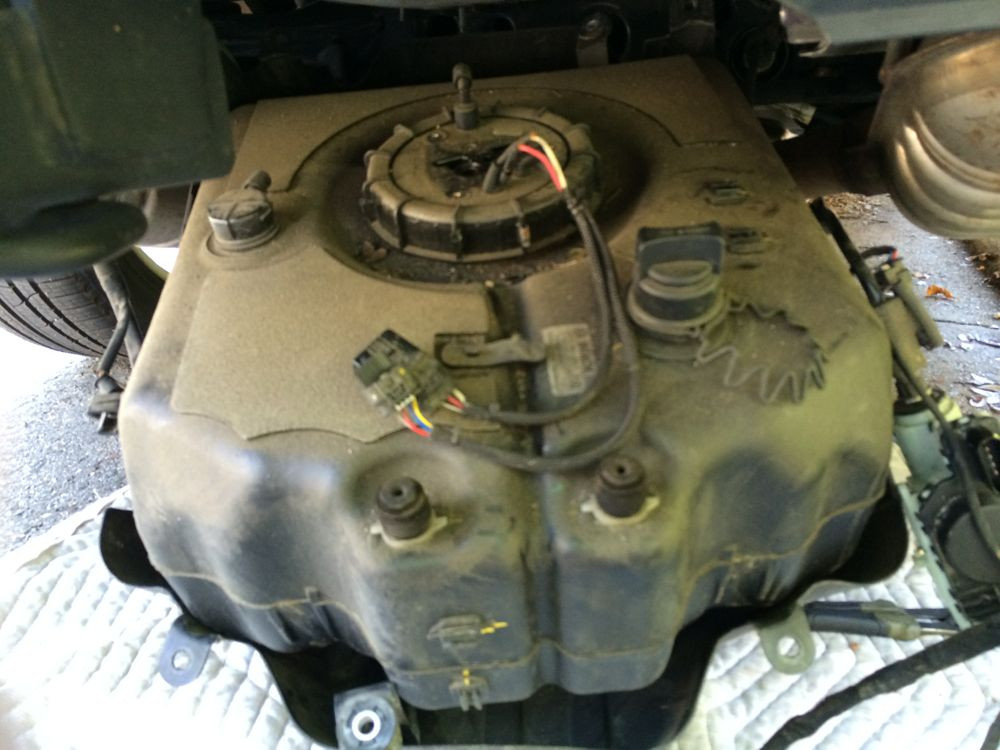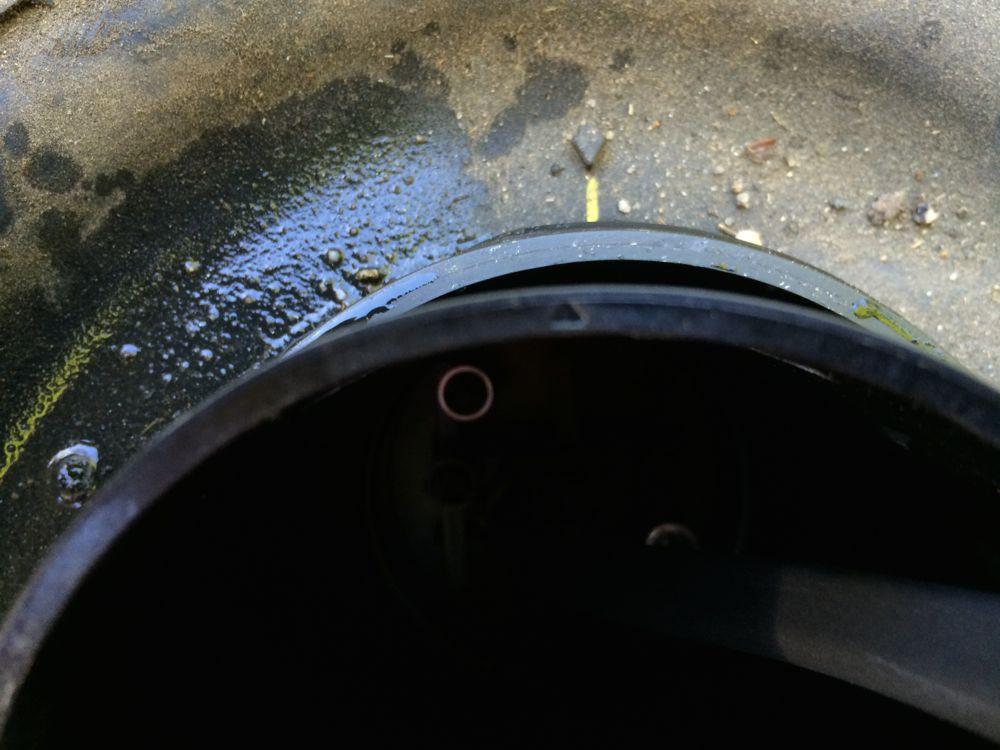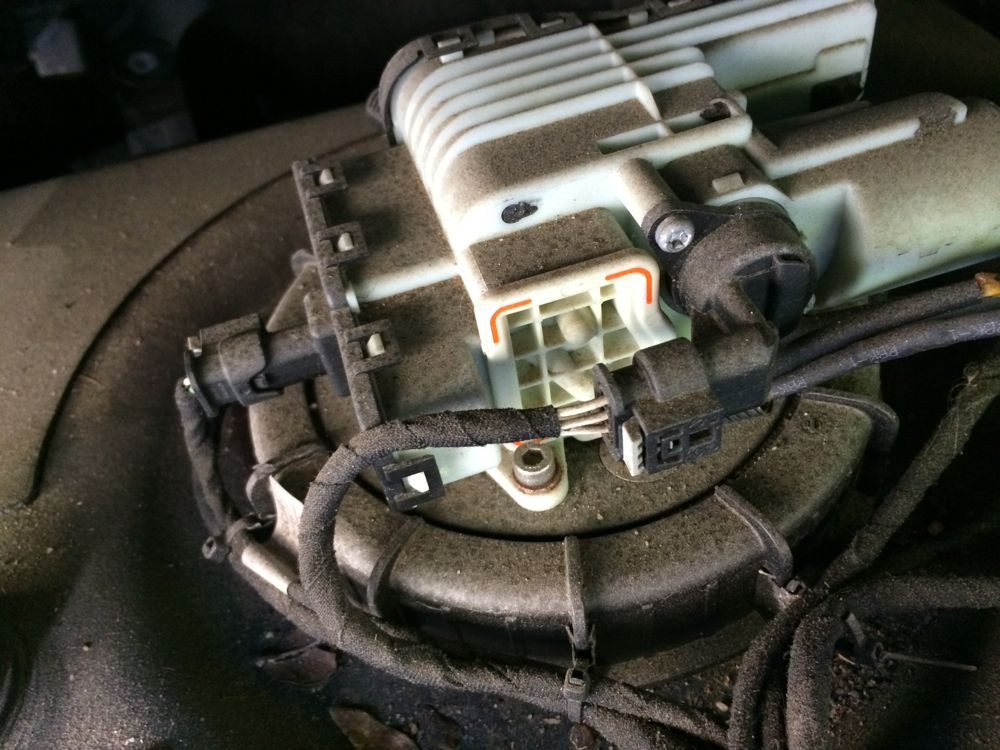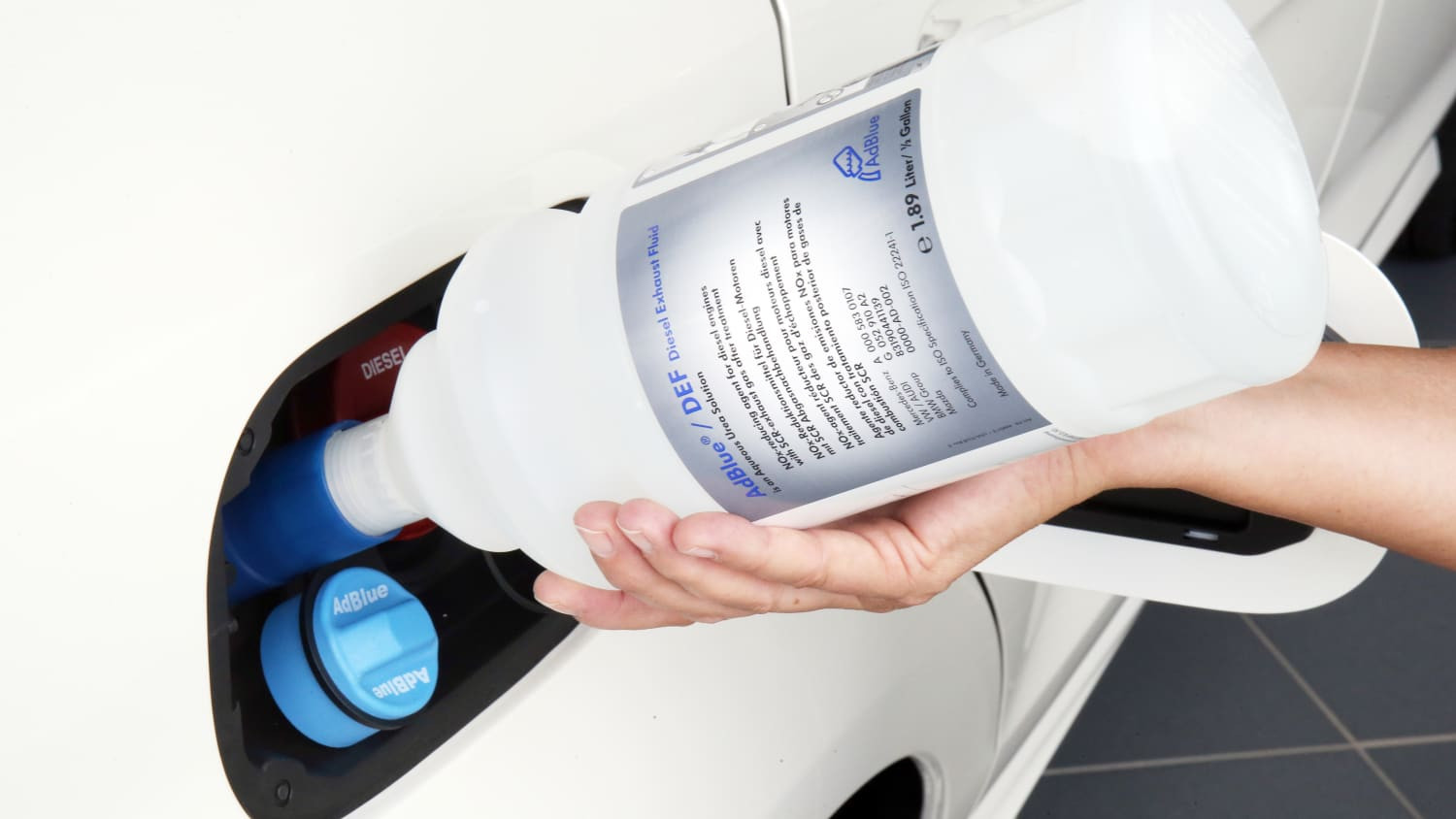Mercedes AdBlue Heater Failure: Causes, Symptoms, Solutions

Mercedes AdBlue heater failure is a common issue that can lead to significant problems with your vehicle’s emissions system. At CARDIAGTECH.NET, we provide the tools and expertise needed to diagnose and resolve this issue efficiently, ensuring your Mercedes stays compliant and performs optimally. Learn how to identify, address, and prevent AdBlue heater malfunctions with expert insights and solutions to keep your diesel engine running smoothly.
1. Understanding the Mercedes AdBlue System
The Selective Catalytic Reduction (SCR) system, often referred to as the AdBlue system, is crucial for reducing harmful nitrogen oxide (NOx) emissions in diesel vehicles. This system injects AdBlue, a urea-based fluid, into the exhaust stream. This process converts NOx into harmless nitrogen and water. Regulations like Euro 6 mandate these systems to meet strict emission standards, improving air quality and reducing environmental impact. The AdBlue heater plays a vital role, especially in colder climates, by ensuring the AdBlue fluid remains in a liquid state, allowing the SCR system to function correctly.
1.1. The Role of AdBlue in Emission Control
AdBlue, also known as Diesel Exhaust Fluid (DEF), is essential for modern diesel vehicles to meet stringent emission standards. Its primary function is to reduce NOx emissions, contributing to cleaner air and compliance with environmental regulations.
1.2. Key Components of the AdBlue System
The AdBlue system consists of several key components:
- AdBlue Tank: Stores the AdBlue fluid.
- AdBlue Pump: Delivers the fluid to the injector.
- AdBlue Injector: Sprays the AdBlue into the exhaust stream.
- AdBlue Heater: Prevents the fluid from freezing in cold temperatures.
- SCR Catalyst: Facilitates the conversion of NOx into nitrogen and water.
- Sensors and Control Unit: Monitor and regulate the system’s operation.
1.3. Importance of the AdBlue Heater
The AdBlue heater is critical for maintaining the functionality of the SCR system, especially in cold weather. Without a properly functioning heater, the AdBlue fluid can freeze, preventing the system from reducing emissions, which can lead to fault codes and potential engine performance issues.
2. Identifying a Mercedes AdBlue Heater Failure
Recognizing the symptoms of a failing AdBlue heater early can prevent more significant damage and costly repairs. Keep an eye out for warning lights, performance issues, and diagnostic trouble codes to ensure your Mercedes operates efficiently.
2.1. Common Symptoms of AdBlue Heater Failure
- Warning Lights: The most common sign is the illumination of the check engine light or specific AdBlue warning lights on the dashboard.
- Error Messages: Messages such as “Check AdBlue,” “AdBlue Malfunction,” or similar warnings may appear on the vehicle’s display.
- Reduced Engine Performance: The engine may enter a “limp mode,” restricting power and speed to prevent further emissions violations.
- Increased Emissions: Noticeably higher exhaust emissions, potentially leading to a failed emissions test.
- AdBlue System Freezing: In cold weather, the AdBlue fluid may freeze, preventing the system from functioning.
2.2. Diagnostic Trouble Codes (DTCs) Associated with AdBlue Heater Failure
Diagnostic Trouble Codes provide specific information about the nature of the problem. Common codes related to AdBlue heater failure include:
- P20BA: Reductant Heater A Control Circuit/Open
- P20BD: Reductant Heater A Control Circuit Low
- P20BE: Reductant Heater A Control Circuit High
- P20E8: Reductant Metering Unit Pump Control Circuit Low
- P20E9: Reductant Metering Unit Pump Control Circuit High
2.3. Using Diagnostic Tools to Confirm the Failure
Using diagnostic tools like OBD-II scanners can help confirm AdBlue heater failure by reading and interpreting DTCs. These tools can also provide live data, allowing technicians to monitor the heater’s performance and identify any anomalies. CARDIAGTECH.NET offers a range of diagnostic tools to accurately diagnose and address AdBlue system issues. Contact us at +1 (641) 206-8880 for expert assistance.
3. Causes of Mercedes AdBlue Heater Failure
Several factors can lead to the failure of the AdBlue heater in your Mercedes. Understanding these causes can help prevent future issues and ensure your system operates reliably.
3.1. Electrical Issues
Electrical problems are a primary cause of AdBlue heater failure. These can include:
- Wiring Harness Damage: Damaged or corroded wiring can disrupt the electrical supply to the heater.
- Faulty Relays: Relays control the power supply to the heater, and a malfunctioning relay can prevent it from operating.
- Blown Fuses: Overloads or shorts in the circuit can cause fuses to blow, cutting off power to the heater.
3.2. Heater Element Malfunction
The heater element itself can fail over time due to:
- Burnout: Constant heating and cooling cycles can cause the element to burn out.
- Corrosion: Exposure to the AdBlue fluid can lead to corrosion of the heating element.
- Physical Damage: Impacts or vibrations can physically damage the heater element.
3.3. Software and Control Module Problems
Software glitches or issues with the control module can also cause AdBlue heater failure:
- Software Bugs: Errors in the vehicle’s software can prevent the heater from functioning correctly.
- Control Module Failure: The control module that regulates the AdBlue system can malfunction, leading to heater failure.
- Incompatible Updates: Incorrect or incompatible software updates can disrupt the system’s operation.
3.4. Environmental Factors
Environmental conditions can also contribute to AdBlue heater failure:
- Extreme Cold: Prolonged exposure to extremely cold temperatures can strain the heater.
- Moisture and Corrosion: Moisture can cause corrosion in the electrical connections and heater components.
- Road Salt: Exposure to road salt can accelerate corrosion, particularly in colder climates where salt is used to de-ice roads.
 Mercedes AdBlue Tank
Mercedes AdBlue Tank
4. Step-by-Step Guide to Diagnosing AdBlue Heater Failure
Diagnosing AdBlue heater failure involves a systematic approach to pinpoint the exact cause. Here’s a detailed guide to help you through the process.
4.1. Initial Inspection
- Check for Obvious Signs of Damage: Look for any visible damage to the AdBlue tank, heater, and wiring.
- Inspect Electrical Connections: Ensure all electrical connections are secure and free from corrosion.
- Examine Fuses and Relays: Check the fuses and relays associated with the AdBlue system to ensure they are functioning correctly.
4.2. Using an OBD-II Scanner
- Connect the Scanner: Plug an OBD-II scanner into the vehicle’s diagnostic port.
- Read Diagnostic Trouble Codes: Retrieve any stored DTCs related to the AdBlue system.
- Interpret the Codes: Use the DTCs to identify the specific problem area, such as the heater circuit or control module.
4.3. Testing the Heater Circuit
- Check Voltage Supply: Use a multimeter to check the voltage supply to the heater. Ensure it is within the specified range (typically 12V).
- Test Heater Resistance: Measure the resistance of the heater element to check for continuity. An open circuit indicates a faulty heater.
- Inspect Wiring Harness: Check the wiring harness for any breaks, shorts, or corrosion.
4.4. Verifying the Control Module
- Check Software Version: Ensure the control module has the latest software version.
- Monitor Live Data: Use the diagnostic tool to monitor live data from the AdBlue system, including heater temperature and control signals.
- Perform Actuator Tests: Use the diagnostic tool to perform actuator tests on the heater to verify its functionality.
4.5. Seeking Professional Assistance
If you are not comfortable performing these diagnostic steps, it is best to seek assistance from a qualified technician. CARDIAGTECH.NET can connect you with experienced professionals who can accurately diagnose and repair AdBlue system issues. Reach out to us at 276 Reock St, City of Orange, NJ 07050, United States, or call +1 (641) 206-8880 for expert support.
5. Repairing a Mercedes AdBlue Heater Failure
Once you have diagnosed the AdBlue heater failure, you can proceed with the necessary repairs. The following steps outline the common repair procedures.
5.1. Replacing the AdBlue Heater
- Gather Necessary Tools and Parts: Collect the required tools, including wrenches, sockets, screwdrivers, and a new AdBlue heater. Ensure you have the correct part number for your vehicle model.
- Disconnect the Battery: Disconnect the negative terminal of the battery to prevent electrical shorts.
- Drain the AdBlue Tank (If Necessary): If the heater is located inside the tank, you may need to drain the AdBlue fluid. Use a siphon or pump to remove the fluid into a clean container.
- Remove the Old Heater: Disconnect the electrical connections and any retaining clips or fasteners. Carefully remove the old heater from its housing.
- Install the New Heater: Install the new heater, ensuring all connections are secure. Reconnect the electrical connections and any retaining clips or fasteners.
- Refill the AdBlue Tank (If Drained): If you drained the tank, refill it with fresh AdBlue fluid.
- Reconnect the Battery: Reconnect the negative terminal of the battery.
5.2. Repairing Wiring Issues
- Identify Damaged Wires: Locate any damaged or corroded wires in the heater circuit.
- Repair or Replace Wires: Repair damaged wires by splicing in new sections or replace the entire wiring harness if necessary.
- Secure Connections: Ensure all connections are clean and secure. Use dielectric grease to protect against corrosion.
5.3. Addressing Control Module Problems
- Software Update: Check for and install any available software updates for the control module.
- Module Replacement: If the control module is faulty, replace it with a new or refurbished unit.
- Programming: Program the new control module to match your vehicle’s specifications. This may require specialized diagnostic tools.
5.4. Post-Repair Verification
- Clear Diagnostic Trouble Codes: Use an OBD-II scanner to clear any stored DTCs.
- Monitor System Performance: Monitor the AdBlue system’s performance using the diagnostic tool to ensure the heater is functioning correctly.
- Test Drive: Perform a test drive to verify that the AdBlue system is operating as expected and that no warning lights reappear.
 AdBlue Heater Replacement
AdBlue Heater Replacement
6. Preventing Future AdBlue Heater Failures
Preventive maintenance and care can significantly reduce the risk of future AdBlue heater failures. Follow these tips to keep your system in top condition.
6.1. Regular Maintenance
- Inspect the AdBlue System Regularly: Check for any signs of leaks, damage, or corrosion.
- Monitor AdBlue Fluid Levels: Ensure the AdBlue tank is always adequately filled with high-quality fluid.
- Check Electrical Connections: Periodically inspect electrical connections for corrosion and ensure they are securely fastened.
6.2. Using High-Quality AdBlue Fluid
- Choose Reputable Brands: Use AdBlue fluid from reputable brands that meet ISO 22241 standards.
- Avoid Contamination: Prevent contamination of the AdBlue fluid by using clean containers and funnels when refilling.
- Store Properly: Store AdBlue fluid in a cool, dry place, away from direct sunlight, to prevent degradation.
6.3. Protecting Against Cold Weather
- Use AdBlue Additives: Consider using AdBlue additives that prevent freezing in extremely cold temperatures.
- Park Indoors: When possible, park your vehicle in a garage or sheltered area to protect it from the elements.
- Ensure Proper Insulation: Check that the AdBlue tank and heater are properly insulated to prevent freezing.
6.4. Promptly Addressing Warning Signs
- Investigate Warning Lights: If any warning lights or error messages appear, investigate them promptly to identify and address potential issues.
- Seek Professional Advice: Consult with a qualified technician if you notice any unusual symptoms or performance issues with your AdBlue system.
By following these preventive measures, you can extend the life of your AdBlue heater and ensure your Mercedes remains compliant with emission standards.
7. Tools and Equipment for AdBlue System Repairs
Having the right tools and equipment is essential for effectively diagnosing and repairing AdBlue system issues. CARDIAGTECH.NET offers a wide range of high-quality tools to meet your needs.
7.1. Diagnostic Tools
- OBD-II Scanners: Essential for reading and clearing diagnostic trouble codes. Look for scanners that support live data monitoring and actuator tests.
- Multimeters: Used for testing voltage, resistance, and continuity in electrical circuits.
- Specialized Diagnostic Software: Software that provides in-depth analysis of the AdBlue system and allows for module programming and software updates.
7.2. Repair Tools
- Wrenches and Sockets: A variety of wrenches and sockets are needed for removing and installing components.
- Screwdrivers: Both flathead and Phillips head screwdrivers are essential for various tasks.
- Pliers: Used for gripping, cutting, and bending wires and components.
- Wire Strippers and Crimpers: Needed for repairing and replacing wiring.
- Fluid Transfer Tools: Syphons, pumps, and funnels are required for draining and refilling AdBlue fluid.
7.3. Safety Equipment
- Gloves: Protect your hands from chemicals and sharp objects.
- Safety Glasses: Prevent eye injuries from debris and fluids.
- Protective Clothing: Wear appropriate clothing to protect your skin from chemicals and dirt.
7.4. Purchasing Tools from CARDIAGTECH.NET
CARDIAGTECH.NET provides a comprehensive selection of diagnostic and repair tools specifically designed for automotive technicians. Our tools are designed to enhance efficiency, accuracy, and safety. Contact us at +1 (641) 206-8880 or visit our website CARDIAGTECH.NET to explore our product range and find the right tools for your needs.
8. Cost Considerations for AdBlue Heater Repair
Understanding the costs associated with AdBlue heater repair can help you budget effectively and make informed decisions.
8.1. Cost of Replacement Parts
The cost of replacement parts can vary depending on the vehicle model and the brand of the part. Here are some typical costs:
- AdBlue Heater: $200 – $800
- Control Module: $300 – $1000
- Wiring Harness: $100 – $300
- AdBlue Fluid: $20 – $50 per gallon
8.2. Labor Costs
Labor costs can vary depending on the complexity of the repair and the hourly rate of the technician. Typical labor costs for AdBlue heater repair range from $100 to $500.
8.3. Total Repair Cost
The total cost of AdBlue heater repair can range from $300 to $1500 or more, depending on the specific issues and the parts and labor required.
8.4. Factors Affecting Repair Costs
- Vehicle Model: The make and model of your vehicle can affect the cost of parts and labor.
- Complexity of Repair: More complex repairs, such as control module replacement, will typically cost more.
- Location: Labor rates can vary depending on your geographic location.
- DIY vs. Professional Repair: DIY repairs can save on labor costs but may require specialized tools and knowledge.
8.5. Potential Savings with CARDIAGTECH.NET
By purchasing diagnostic tools and replacement parts from CARDIAGTECH.NET, you can potentially save on repair costs. Our high-quality tools and competitive pricing can help you perform repairs efficiently and affordably.
9. Real-World Case Studies
Examining real-world case studies can provide valuable insights into the diagnosis and repair of AdBlue heater failures.
9.1. Case Study 1: P20BA Code on a Mercedes Sprinter
- Problem: A Mercedes Sprinter exhibited a P20BA code, indicating a fault in the reductant heater A control circuit.
- Diagnosis: Using an OBD-II scanner, the technician confirmed the P20BA code and performed a visual inspection of the AdBlue system. They found a damaged wiring harness near the heater.
- Solution: The technician repaired the damaged wiring harness and cleared the DTC. They then monitored the system’s performance to ensure the heater was functioning correctly.
- Outcome: The repair resolved the issue, and the Sprinter passed an emissions test.
9.2. Case Study 2: AdBlue Freezing on a Mercedes GLK
- Problem: A Mercedes GLK experienced AdBlue freezing in cold weather, resulting in reduced engine performance and an AdBlue warning light.
- Diagnosis: The technician used a diagnostic tool to read the DTCs, which indicated a faulty AdBlue heater. They also inspected the heater and found it was not functioning.
- Solution: The technician replaced the AdBlue heater and used an AdBlue additive to prevent future freezing.
- Outcome: The new heater resolved the freezing issue, and the GLK’s performance returned to normal.
9.3. Case Study 3: Control Module Failure on a Mercedes C-Class
- Problem: A Mercedes C-Class displayed multiple AdBlue-related error codes, and the AdBlue heater was not functioning.
- Diagnosis: The technician performed a comprehensive diagnostic test and determined that the control module was faulty.
- Solution: The technician replaced the control module and programmed it to match the vehicle’s specifications.
- Outcome: The new control module resolved the issues, and the AdBlue system began functioning correctly.
9.4. Lessons Learned
These case studies highlight the importance of thorough diagnosis, the use of high-quality tools and parts, and the value of preventive maintenance in addressing AdBlue heater failures.
10. The Future of AdBlue Systems and Technology
The technology behind AdBlue systems is continuously evolving to meet increasingly stringent emission standards and improve vehicle performance. Staying informed about these advancements can help you maintain and repair these systems effectively.
10.1. Advancements in AdBlue Technology
- Improved Heater Designs: New heater designs are more efficient and durable, with better resistance to corrosion and extreme temperatures.
- Enhanced Control Modules: Advanced control modules offer more precise control over the AdBlue system, improving its efficiency and reducing emissions.
- Integrated Sensors: Integrated sensors provide real-time monitoring of the AdBlue system, allowing for more accurate diagnostics and proactive maintenance.
10.2. Meeting Future Emission Standards
- Euro 7 Standards: The upcoming Euro 7 emission standards will require even stricter control of NOx emissions, driving further advancements in AdBlue technology.
- Real Driving Emissions (RDE) Testing: RDE testing will ensure that vehicles meet emission standards under real-world driving conditions, further emphasizing the importance of properly functioning AdBlue systems.
10.3. CARDIAGTECH.NET’s Role in Supporting Future Technologies
CARDIAGTECH.NET is committed to providing the latest diagnostic tools and repair solutions to support these advancements. We continuously update our product range to ensure you have the tools you need to maintain and repair modern AdBlue systems effectively. Contact us at +1 (641) 206-8880 or visit our website to learn more about our innovative solutions.
10.4. Training and Education
Staying up-to-date with the latest technologies requires ongoing training and education. CARDIAGTECH.NET offers resources and training programs to help technicians enhance their skills and knowledge of AdBlue systems and other automotive technologies.
FAQ: Mercedes AdBlue Heater Failure
- What is the AdBlue system in a Mercedes?
The AdBlue system, also known as Selective Catalytic Reduction (SCR), reduces nitrogen oxide (NOx) emissions in diesel vehicles by injecting a urea-based fluid into the exhaust stream. - What does the AdBlue heater do?
The AdBlue heater prevents the AdBlue fluid from freezing in cold temperatures, ensuring the SCR system functions correctly and reduces emissions effectively. - What are the symptoms of a failing AdBlue heater?
Symptoms include warning lights, error messages, reduced engine performance, increased emissions, and AdBlue system freezing in cold weather. - What are common diagnostic trouble codes (DTCs) associated with AdBlue heater failure?
Common DTCs include P20BA, P20BD, P20BE, P20E8, and P20E9, indicating issues with the heater circuit or control module. - What causes AdBlue heater failure in Mercedes vehicles?
Causes include electrical issues, heater element malfunction, software and control module problems, and environmental factors like extreme cold and corrosion. - Can I diagnose AdBlue heater failure myself?
Yes, you can use an OBD-II scanner to read DTCs and perform basic tests. However, some issues may require professional diagnostic tools and expertise. - How do I replace a faulty AdBlue heater?
Replacing the heater involves gathering tools, disconnecting the battery, draining the AdBlue tank (if necessary), removing the old heater, installing the new heater, refilling the tank, and reconnecting the battery. - What tools are needed for AdBlue system repairs?
Essential tools include OBD-II scanners, multimeters, wrenches, sockets, screwdrivers, pliers, wire strippers, and fluid transfer tools. - How can I prevent future AdBlue heater failures?
Preventive measures include regular maintenance, using high-quality AdBlue fluid, protecting against cold weather, and promptly addressing warning signs. - Where can I purchase tools and parts for AdBlue system repairs?
You can purchase high-quality diagnostic tools and replacement parts from CARDIAGTECH.NET. Contact us at +1 (641) 206-8880 or visit our website for more information.
Conclusion
Mercedes AdBlue heater failure can be a frustrating issue, but with the right knowledge and tools, it can be effectively diagnosed and repaired. By understanding the system’s function, recognizing the symptoms of failure, and following the appropriate diagnostic and repair steps, you can keep your Mercedes running smoothly and compliant with emission standards.
CARDIAGTECH.NET is your trusted partner for all your automotive diagnostic and repair needs. We offer a wide range of high-quality tools and equipment, along with expert support and resources to help you tackle even the most challenging issues.
Don’t let AdBlue heater failure slow you down. Contact CARDIAGTECH.NET today at +1 (641) 206-8880 or visit our website CARDIAGTECH.NET to explore our product range and get the support you need. Our address is 276 Reock St, City of Orange, NJ 07050, United States. Let us help you keep your Mercedes performing at its best.
 Mercedes AdBlue System
Mercedes AdBlue System



